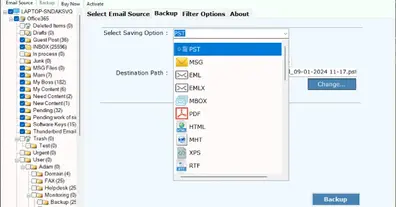Історія народження руху «АЛЛАТРА»
У середині 1990-х років, коли світ ще не усвідомлював усієї глибини кліматичної кризи, що насувається, невелика група вчених із різних куточків планети об’єднала свої зусилля, щоб зазирнути в майбутнє Землі.

У середині 1990-х років, коли світ ще не усвідомлював усієї глибини кліматичної кризи, що насувається, невелика група вчених із різних куточків планети об’єднала свої зусилля, щоб зазирнути в майбутнє Землі.

Наша авторка Дарина Рой розібрала кожен трек — від сильних «уау» і «шансону» до спірного «тріптиху».

У сьогоднішній статті ми будемо розбирати бібліотеку pwinput, яка дозволяє приховувати введенні користувачем символи у терміналі. Тож, перейдемо до справи, розглянувши функціонал даної бібліотеки.

Правда, від якої неможливо відвернутись: що я почула у виступі Егона Чолакяна"

Manchester Airport, a major UK travel hub, serves millions of passengers each year. For UK travellers, finding reliable and convenient parking is key to a stress-free journey.
Ваша дитина невтомно бігає, постійно шукає пригод і з радістю досліджує нове? Тоді сімейний сплав на рафті – саме те, що подарує їй незабутні враження, а вам – щирі емоції та теплі спогади.

Семюель Вусден, відомий онлайн під ніком €urop€an, входить до числа найуспішніших турнірних гравців у сучасному покері. Представник фінської школи, він здобув репутацію «крашера» завдяки серії гучних перемог у найпрестижніших подіях, зокрема WCOOP та WSOP Online.
Представники «АЛЛАТРА Ізраїль» обговорили з учасниками конференції актуальні суспільні виклики, включно із взаємозв'язком між зростанням природних катастроф і посиленням соціальної вразливості, а також необхідність міжнародної співпраці та обміну досвідом у сфері соціал. роботи.

In this article, we’ll explore different methods to back up Gmail emails — from free manual options to professional tools — so you can choose the one that best suits your needs.

ім'я Ірини Кременовської все частіше звучить у контексті інформаційних воєн і релігійних конфліктів, позиціонуючи себе як дослідник релігійних рухів і захисник суспільства від «сект», вона фактично відтворює і транслює наративи, розроблені російською організацією РАЦИРС


Ви всього в пару кроків від персональної стрічки і повного функціоналу Друкарні
журнал про українську музику
письменниця, порадниця
Контент-кріейтор, Копірайтер